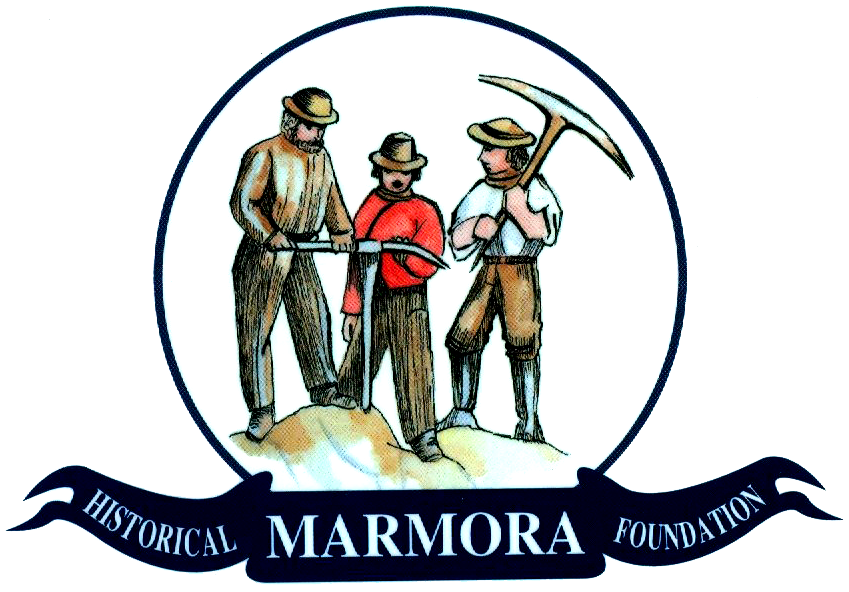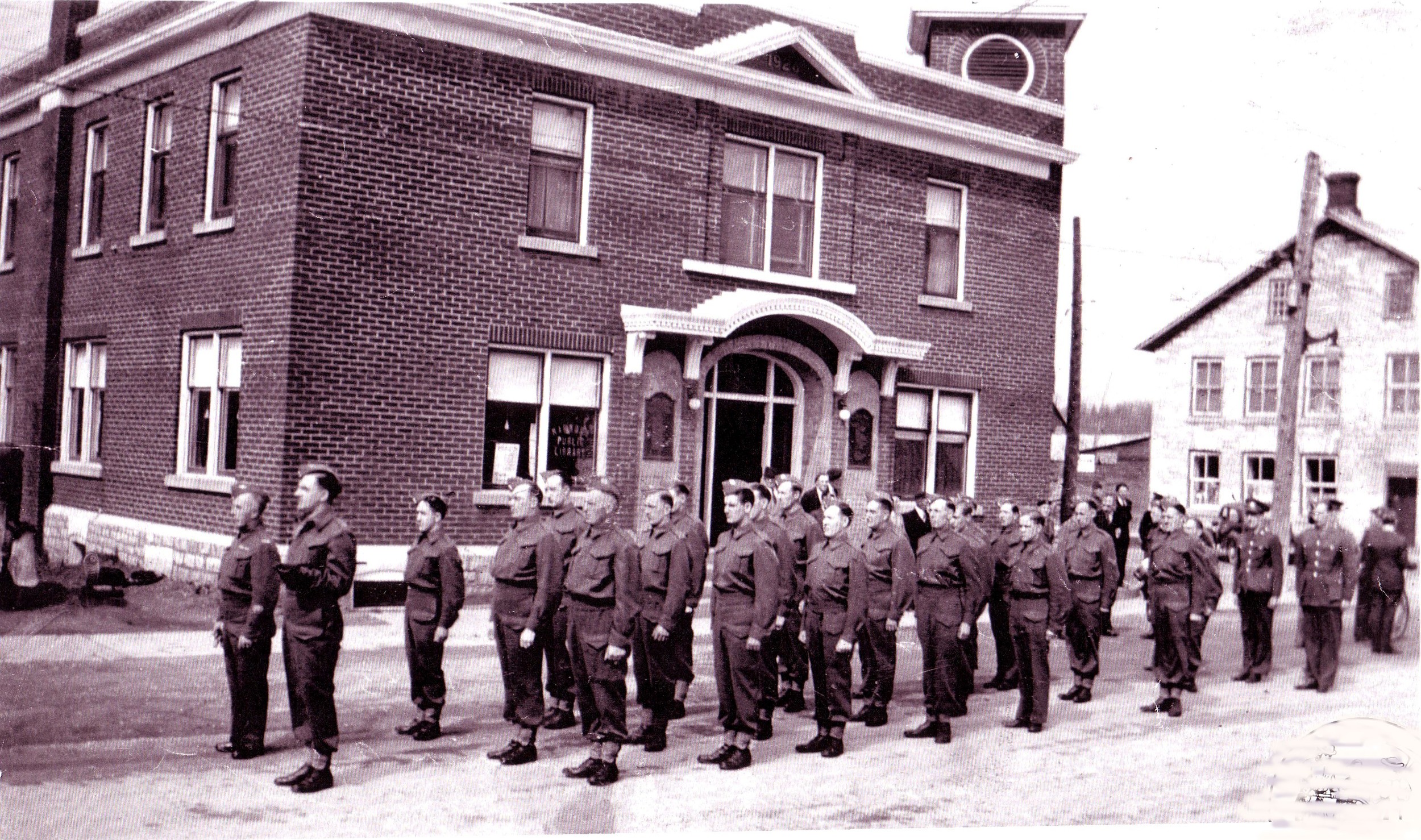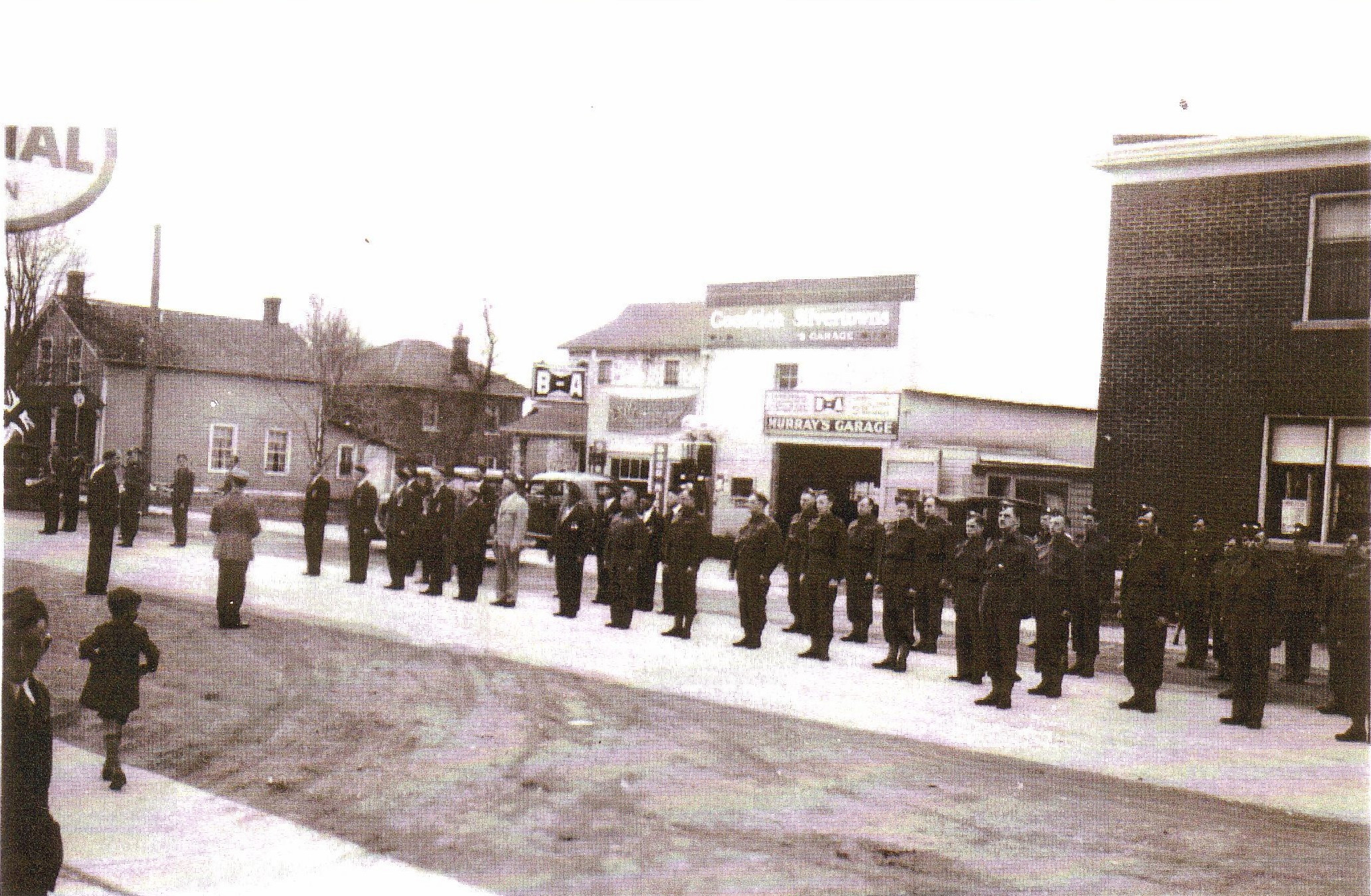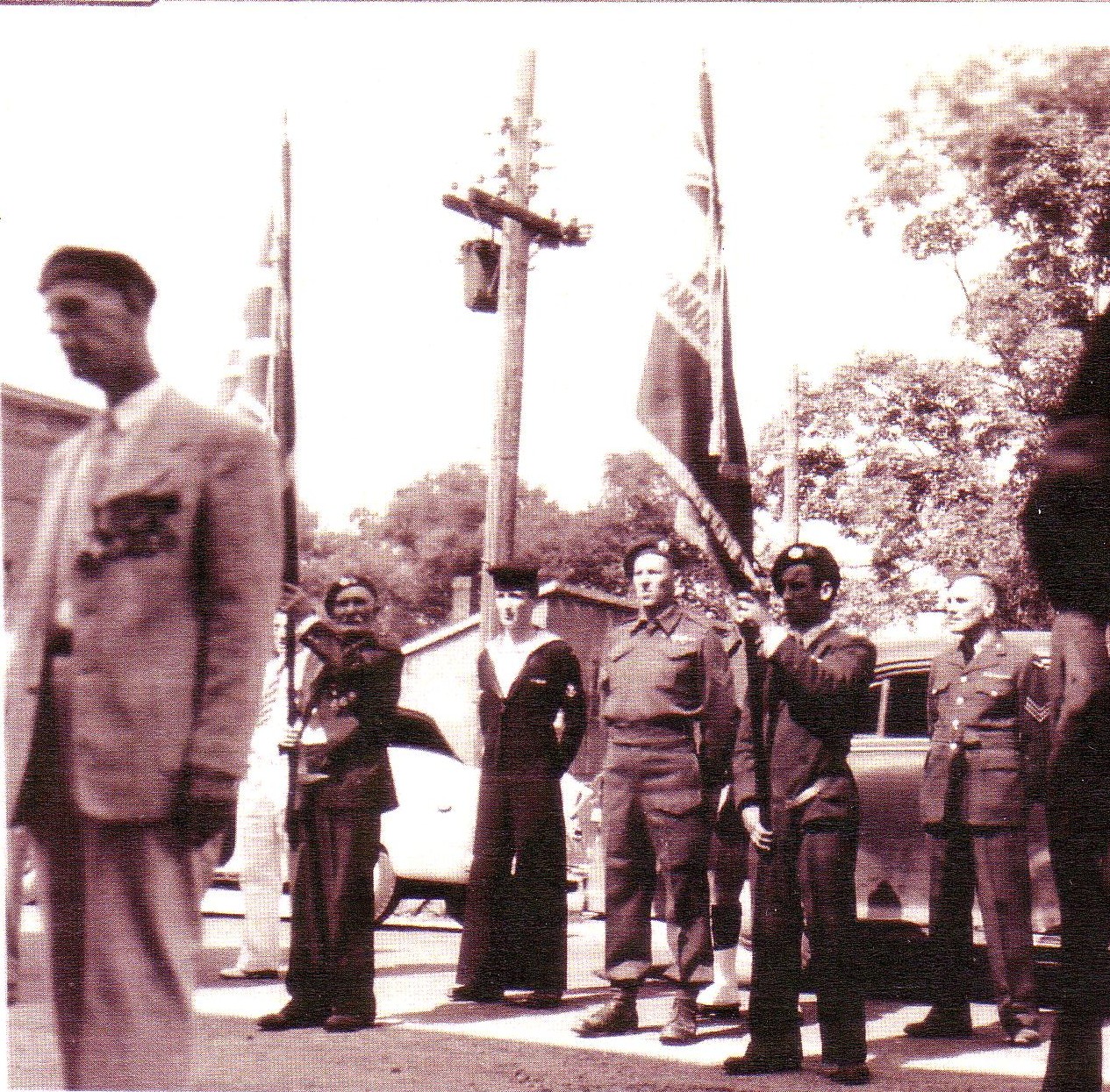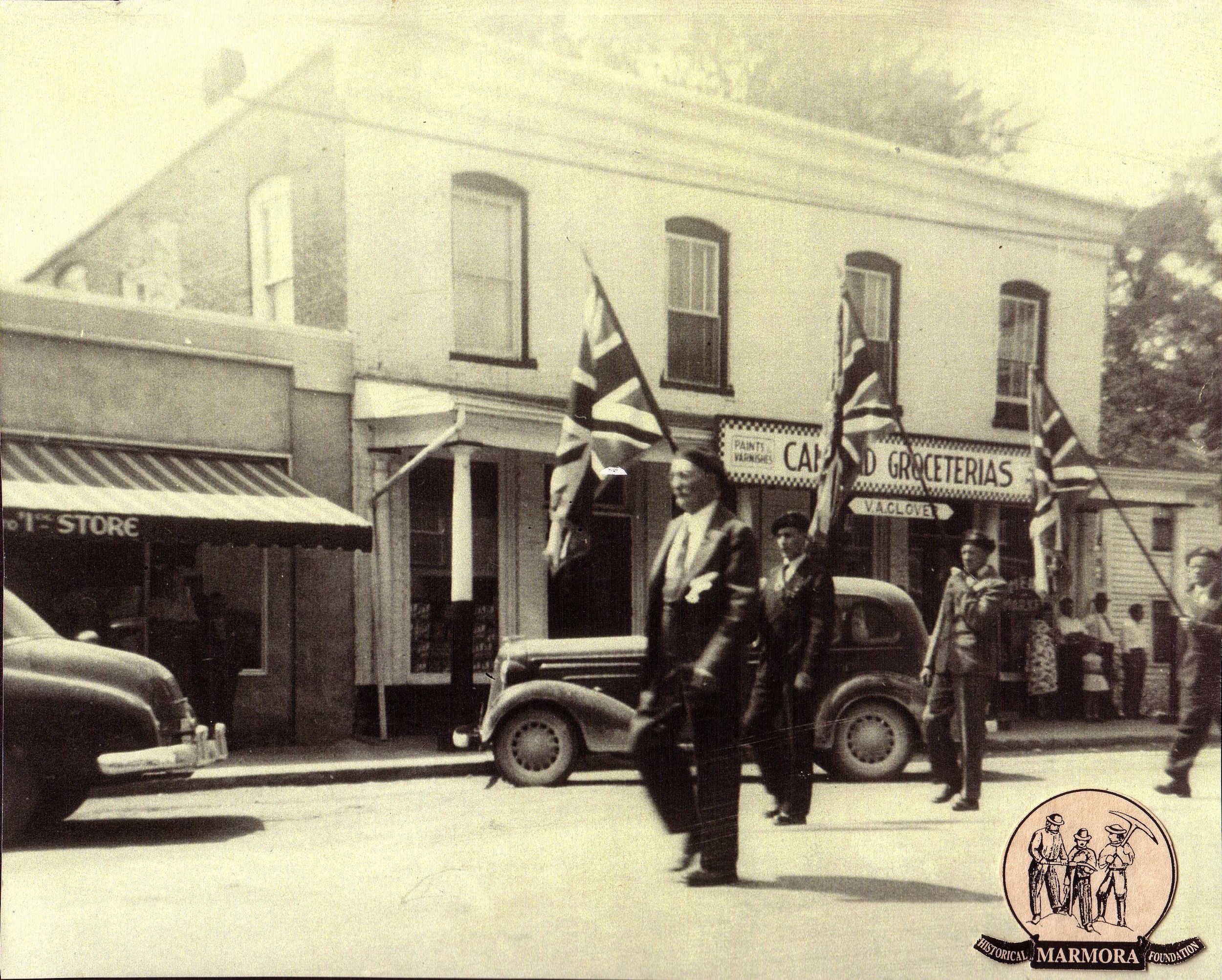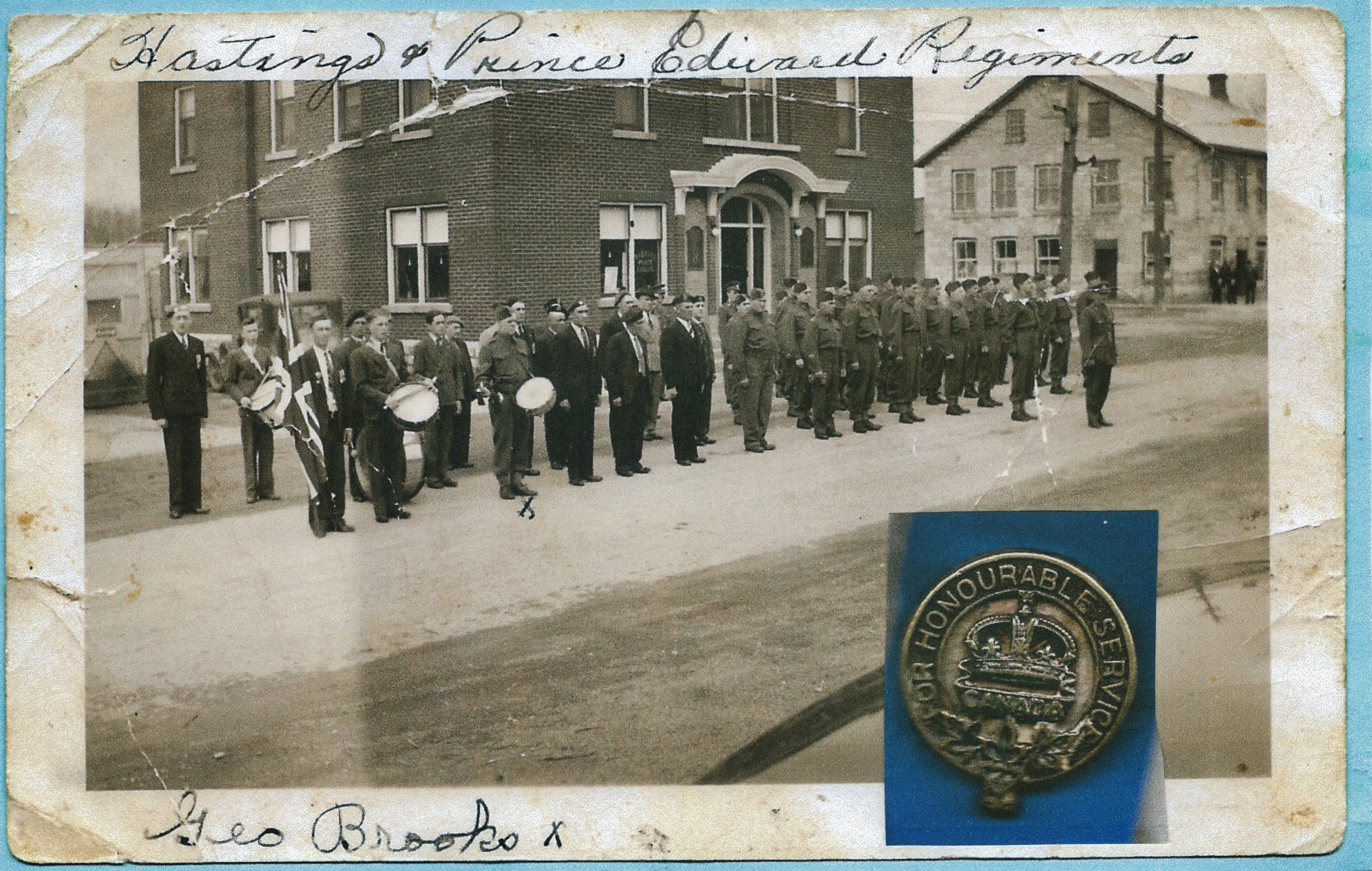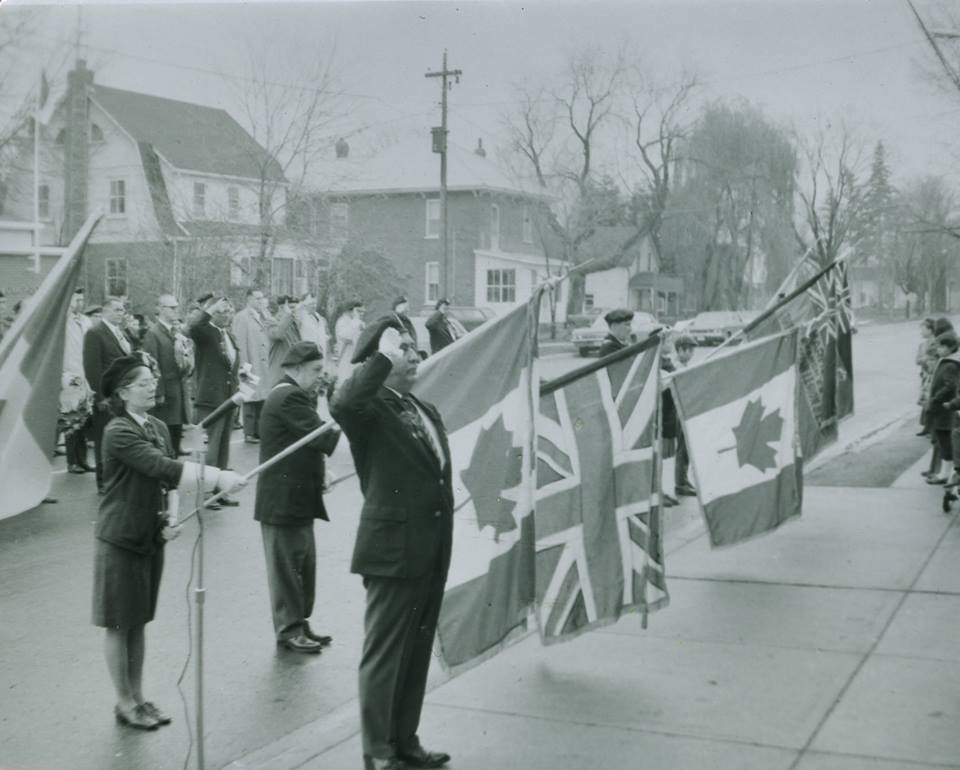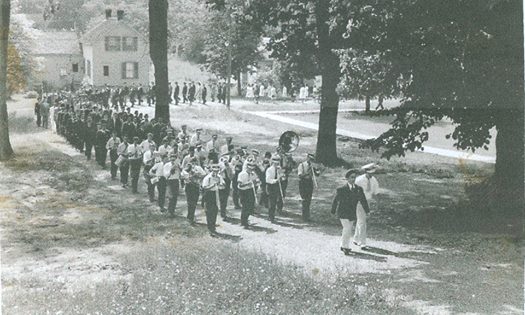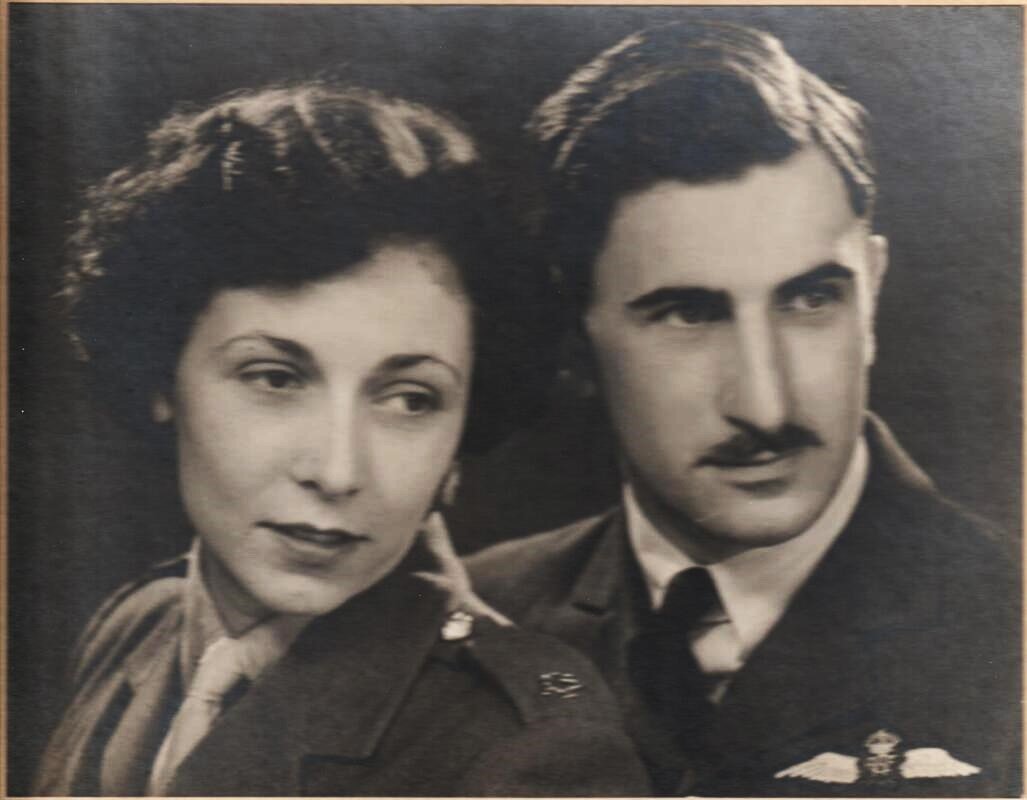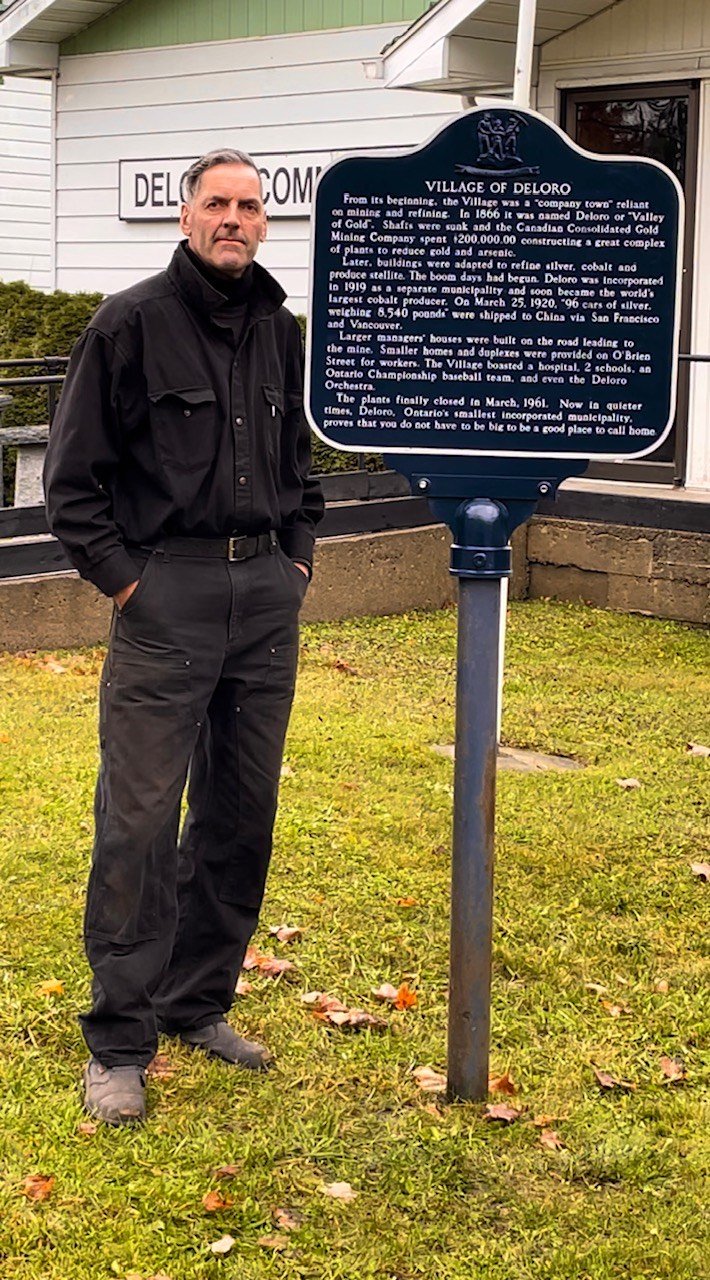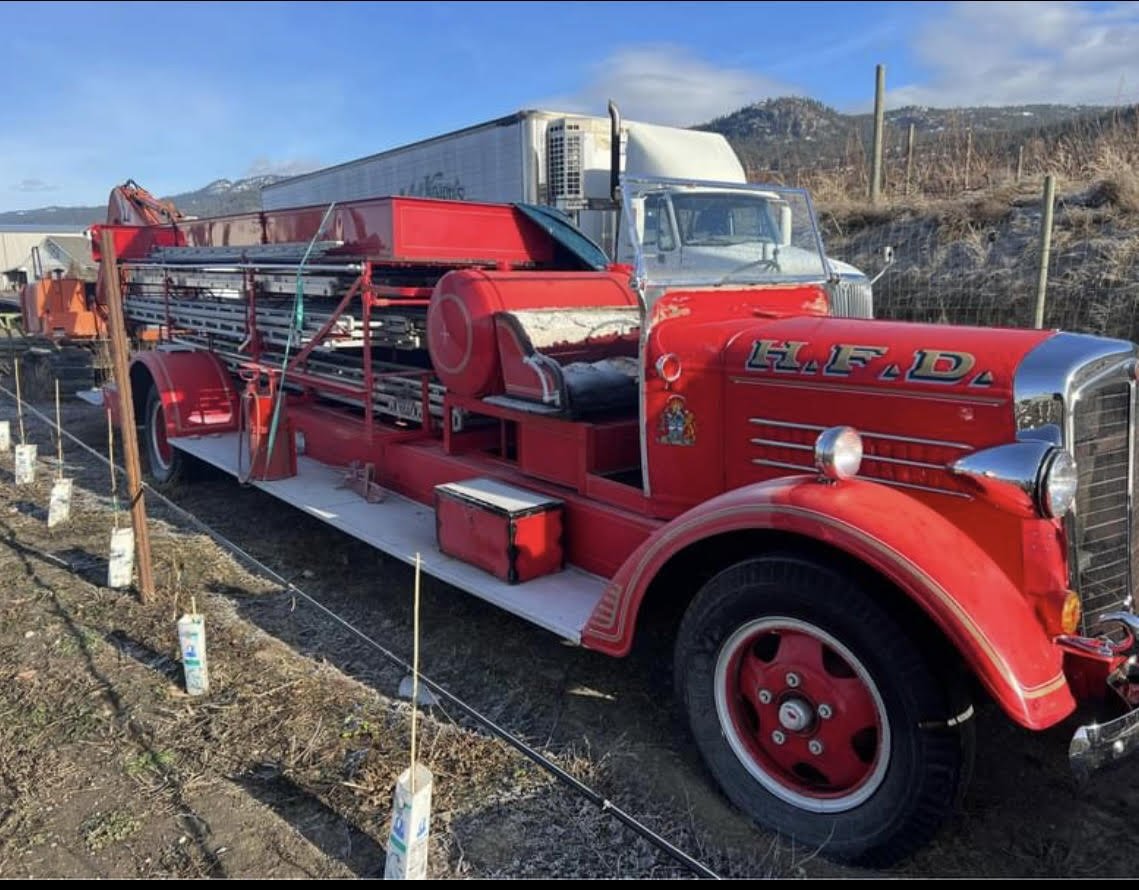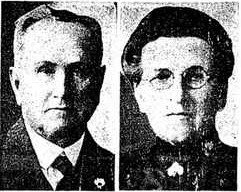Stories from the War - Memories and Memorabilia
WORLD WAR TWO
Picture of Stan Kerr’s bomber from “.forced landing collection”, Sweden
Shortly after 11 at night, Aug. 26, 1943, the phone rings in George and Sadie Kerr's farmhouse kitchen in Marmora, a southern Ontario farming community. Their second boy, "Tink," 23, is serving overseas as an air gunner in RCAF No. 428 Squadron. Jack Baker is on the phone. He's station agent and telegraph operator up the line at Bonarlaw. He reads a telegram from RCAF Headquarters in Ottawa. "Regret to advise that your son, 105117, Sgt. William Stanley Kerr, is reported missing after air operation........stop. RCAF Casualties Officer"
All over Canada, on this night and many more, families are receiving the same sad news. Sadie Kerr goes to pieces. Her two daughters, Ki (Kathleen), 19,and Pete (Margaret), 21, try to comfort her.
A few days later, a letter arrives. "Your son took part in the raid on Berlin ... Unfortunately, nothing has been heard from him, or any member of his crew," says the letter from Kerr's squadron, dated Aug.29. "This was your son's seventh operation and he had proven himself to be a most competent air gunner," writes Commanding Officer D.W.M. Smith. "And he was flying with a very capable pilot. There is always the possibility that your son may be a prisoner of war....
"Your son was a very keen lad and a skilful gunner. His quiet manner, constant willingness and obvious ability has endeared him to all of us and made him a most valuable member of the squadron. We do miss him badly..."
Nearly a month later, on Sept. 23, at 2:30 in the morning, the phone rings again. For a second time, it's station agent Baker with a telegram.
"Pleased to advise International Red Cross, quoting German information, states your son, William Stanley Kerr, is a prisoner of war. Stop. RCAF Casualties Officer."
Kerr's Halifax bomber, H-Harry, is hit over Berlin. The wireless operator is killed; four crew members bail out safely. They include Kerr and Leo Bates, 21, H-Harry's Canadian navigator, from Newfoundland, whose brother, Bill, 25, a fighter pilot ,had been shot down and killed a few weeks earlier. Bates' little brother, Mike, 20, an air gunner, would be reported missing in action, and presumed dead, on June 29, 1944.
H-Harry's pilot, AlIen Read from Medicine Hat, Alta, badly wounded with a spinal injury, manages to fly the crippled plane to Sweden. Over neutral territory, Read and his navigator, JJ. "Scotty' McQuade, bail out and are rescued.
At the Kerr farm in Marmora, it doesn't take long for news to arrive from Tink. It comes, as well as scores of letters and postcards over the next 22 months, with the familiar stamp of German prison mail. "Dear Mother and all," says the card from Prisoner No. 222661, in Stalag IVB. "Hoping by this time you know I am a prisoner of war .... "
A few days later, there's further word.
"Well, Mother and all, keep smiling as Iwill keep my chin up and smiling steady. All my love, your son." Like other prisoners, Kerr writes almost every day. The POWs have clear rules on correspondence, posted by Stalag IVB's "man of confidence," the ranking British officer:
"The censors wish to point out the following: Refrain from using ink ... when writing . . . Refrain from using XXX as a measure of conveying love and ... Do not mention anything of a military nature, for instance, camp strength, arrivals and departures of POWs ... Do not write anything that will be detrimental to Germany. Letters not in compliance with the above will be heavily censored. Warrant Office J. Meyers, British Man of Confidence." (Jack Myers, nicknamed "Snowshoes" because he's Canadian, is chosen by the men. They respect and trust him.)
In letters, Kerr requests cigarettes ("please send 1,000 at a time"), asks for news of his RCAF promotions and urges his dad, "Don't be working near as hard." He inquires about the family's old Model A Ford and says he "sure hopes I'll be home for the fall fairs next year ... I hope to be seeing you all on the big George Kerr farm shortly."
Of course, he won't. He won't be home until the summer of 1945.
Mostly, Kerr tries to cheer his family. "Dear Mother and all," he writes just after Christmas, 1943,"Just received your letter. I was sure the happiest man in camp for I read it 15 times and then other boys from Canada read it, too."
But Stalag IVB gets him down. "I wonder at times if I ever will get out of here," he writes. And on Feb. 8, 1944:"If there is ever any bad news, don't let me know. Some of the boys receive bad news and just about go crazy."
Sadie Kerr throws herself into her own war effort. She joins the Canadian POW Relatives' Association; she clips the Marmora Herald for news of local boys; she writes letters and she saves every last scrap, of paper in a Lady Beth hosiery box that will one day smell of moth balls. She corresponds with her son-in-law Gordon Devolin (daughter Pete's husband), who's in the Canadian army.
sTAN kERR’S hALIFAX bOMBER (PHOTO FROM FORCED LAND COLLECTION, SWEDEN)
THE FATE OF THE H-HARRY CREW:
1943-08-24 (02.05 local time) Halifax B. Mk. V, DK267, NA-H, 428 “Ghost” Squadron, Middleton St. George.> TARGET BERLIN 1 KIA buried at Pålsjö, 2 safe and interned in Falun, 4 POW.
RCAF F/S Harry Allen “Smokey” Read (P) RCAF R77867 from Medicine Hat, Alberta. Born 11 february 1915, Died 1 May 1963. Repatriated: 12 March 1944.
F/O James Joseph “Scotty” McQuade (B) RCAF J21720from Toronto, Ontario. Born 30 January 1920, Died 20 July 1988. Repatriated 12 March 1944.
POW: Sgt William Stanley “Tink” Kerr (TG) RCAF (R105117) Stalag 4B POW no 222611 From Marmora, Ontario. Born 2 March 1920, Dead 15 januari 1995.
POW: Sgt Leo Stanislaus Bates (N) RCAF (R137852) Stalag 4B POW no 222569 From Sydney, Nova Scotia. Born 1923, Died 1991.
POW: Sgt George Walter Patterson (FE) RCAF (R62847) Stalag 4B POW no 222627From Campbellton, New Brunswick. Born 1918, Dead 1973.
POW: Sgt Joseph Taylor (MUG) RAF (2216221) Stalag 4B POW no 222648
Killed in action: Sgt Charles Ernest “Charlie” Crampton (WO) RAF 1196620 From Greetham, Rutland, England. Born 1919, Dead 24 augusti 1943.
On July 13, 1944, Devolin writes her from somewhere in France. "I see by the paper that a lot more of the Marmora lads are overseas," he writes. "Sometimes I wish I was a small kid again, or small enough that I could burrow myself down in the ground in a few seconds like a mouse. Oh well, I guess what is to be will be."
(Devolin comes back to Marmora at war's end.)
From Stalag IVB, Tink Kerr frets about his friend, Walt Ross, 21, a navigator with RCAF No. 419 "Moose" Squadron. Ross disappeared July 26, 1943, over Essen. "Haven't heard any more about Walt Ross, but will likely find out if he is a prisoner of war," Kerr writes from England before his final mission. "Walt Ross wasn't as lucky as I was, for he is RI.P.," Kerr writes Oct. 17, from Stalag IVB, having learned from other prisoners that Ross was killed in a collision with an RAF bomber over the target. It's more than Ross' own family knows.
On Mar. 28, 1944, Mary Ross writes Sadie Kerr from her home on Roxborough St. in Toronto. "I would so much like to know where he (Tink) meant he had been with Walt, if he had been with Walt in Germany and knew for a certainty (he) was R.I.P.," she says. "The pilot of Walt's plane, Leslie Chapman, is a prisoner of war (the only member of the crew that is known to be alive) and I wondered if your son had met him.. "You will understand the anxiety and torture I have gone through and how I would like to know something definite."
Another letter, May 10,1944,arrives in Marmora. "Thank you so much for sending on Stanley's letter," writes Mary Ross. She knows Kerr can't be specific because of camp censors. "I feel he will be able to give me some information. If you only knew definitely just what had happened, but this uncertainty of wondering what he suffered and what he went through is just terrible, and there are so many mothers going through the same thing. "When I read Stanley's letter where he said if there was any bad news not to tell him, I cried. Those poor boys."
She writes one last time on Sept. 6, 1944. "I do hope, Mrs. Kerr, that your son keeps well and that this war soon comes to an end and you will have your boy home again. Only a mother that is going through this terrible anxiety and suspense can feel and know what other mothers are suffering.
My youngest boy goes in the Air Force today. He is only 18."
GORDON BENNETT logged about his war experience
and his son, Lionel Bennett wrote the book. Check out www.lionelbennett.ca
Stella and Gordon Bennett both served in world war II
George & Ray Osborne and Gerald Provost
George Osborne, Gerald Provost and Ray Osborne
king George and staff
Private William Henry Hipson writes from France:
"Fighting in France is tough now and the Germans are surrendering by the thousands", writes Pte. William H. Hipson, to his parents, Mr. and Mrs. Norman Hipson, Marmora. Pte. Hipson is in a Field Ambulance unit and his letter was written the latter part of September.
“I felt sorry for one prisoner, and think anyone else would, as he was a boy 13 years old and about the size of “Rinky” Reynolds (a Marmora boy). We had quite a few prisoners to-night and I helped myself to the loot. They do the same to our boys. We captured a German warehouse of beef and pork, which was all frozen, and I never ate anything so good in the army before. At dinner time to-day I had four big pork chops, and for supper we had beef steak.
“I am going to try and bring a German revolver home for Joe Darrah. I now have two, one for Dad and one for myself. They are a nice souvenir and an accurate revolver.
I am writing this on a writing pad I took from a German to-night and using a fountain pen that I got some time ago. It is my job to look after them when we pick them up and they want us to take money for it. They tell us that the war is no good, and they are now pushed into the front lines or die, so they haven’t much choice. We all believe them to a certain extent.
“I was talking to a young Canadian who was wounded and taken prisoner. They treated him well and 21 of them brought him back to his own lines and surrendered.”
Pte. Hipson went overseas in June 1943 and went to France on D-Day with an ambulance unit. He broke his hand and when he left the hospital, he was posted with another ambulance unit. Prior to enlisting he was employed by the Deloro Smelting and Refining Company and his father served in the last war with the Oxfordshire and Buckingham Light Infantry.
(Wayne VanVolkenburg writes of his uncle "Bill lived with his parents, Norman and Esther, in Marmora until he joined the army in 1942. He tried, unsuccessfully, to enlist before he was 18 but someone informed his parents and they put a stop to it. At some point after the war he moved to Toronto and worked for Coro Jewellers.")
George Phillips, Harold Nayler, Wm Nayler, Gordon Phillips
Mention of Robert Gray
LOST IN WAR BUT NOT FORGOTTEN
From Marmora, but celebrated elsewhere are Elgin Ray Wilson and Ernest Johnson
TO READ MORE ABOUT OUR WW II VETERANS, CLICK HERE
Havelock Air Cadets Squadron 1943
RATIONING
Ration cards sent by Rob Osbourne
tokens used as change
Purchase of a Victory Bond
